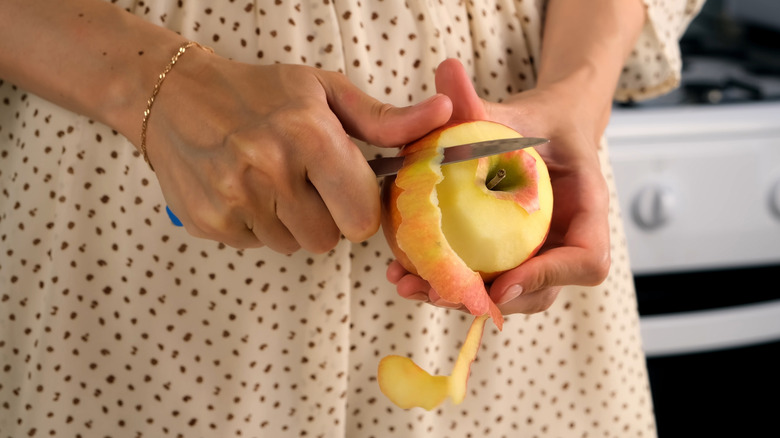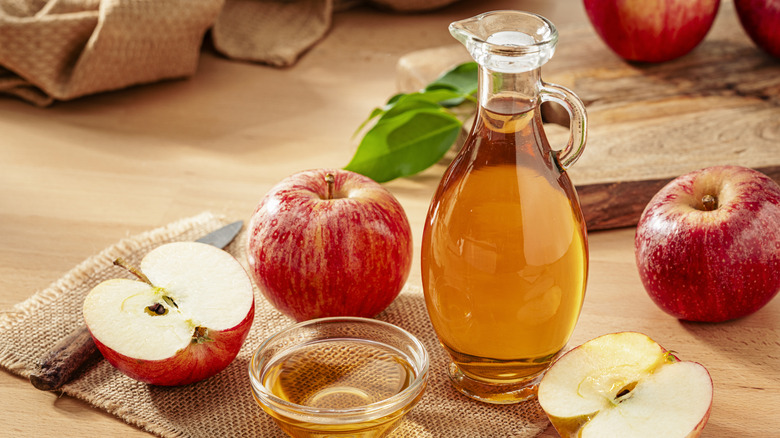Don't Throw Away Apple Peels – Make Apple Cider Vinegar Instead
In an age of convenience and commodity, there's something rewarding about making things yourself. This is especially true if doing so allows you to repurpose something that would otherwise be wasted to create a new, useful product for around the house. That's why Food Republic went to an expert to learn why you shouldn't throw away those apple peels, but use them to make apple cider vinegar.
Imam Mansoor Rafiq Umar, CEO and president at Halal Watch World LLC, was kind enough to sit down with Food Republic to give tips and tricks on how best to make this DIY project work at home. He said it's a simpler process than you'd think — once you have the peels of around a dozen medium apples. "Put them in a clean glass jar, cover with a sugar-water solution (one tablespoon sugar for each cup of water) and [weigh] them down so they are submerged," he explained. "Cover [the jar] with a breathable cloth, such as cheesecloth, and leave it in a dark, warm spot for two to four weeks, stirring occasionally."
When it comes to knowing it's done, trust your senses. Umar noted that bubbles mean it's successfully fermenting, turning sugar into alcohol, "and later acetic acid, thanks to natural yeasts and acetobacteria." Umar said, "It's ready when it smells tangy and vinegary — taste it to make sure." Once it's ready, you can start adding it into recipes, such as braising pork shanks for the ultimate fall dish.
Choosing the right ingedients for the job
When it comes to which apples to use for this project, you can choose any variety you like, so much of this will come down to personal preference. As a starting point, you can try Imam Mansoor Rafiq Umar's favorite. "I prefer sweet and tart apple varieties such as Granny Smith for a more pungent vinegar," he said.
He also advised choosing natural ingredients for the purest results. "For those who are new to the process," he told us, "choose organic apples to reduce exposure to pesticides, and check for mold; a white film (the 'mother') is normal, but toss it if you see green or black fuzz." Finally, you'll want to mind your virtues. "Be patient," Umar noted. "Rushing can lead to wimpy vinegar."
Apple cider is a handy cooking ingredient, but its uses go far beyond that. You can clean your kitchen with it, killing some germs and polishing walls and windows without leaving as lingering a smell as white vinegar. However, you should avoid cleaning certain kitchen surfaces with vinegar. Natural stone, such as marble or granite, can be damaged by the acidity, so save those beautiful stone countertops for a mild dish soap and a soft cloth. Grout or anything wooden can also easily be damaged by vinegar.


